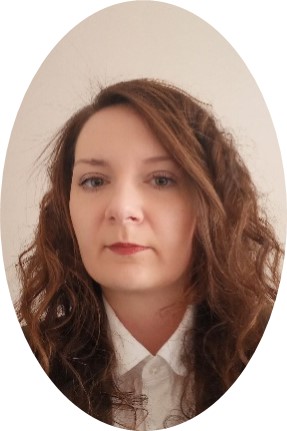How IP strategy is understood at a time of rapid technological advancements? – Interview with Dorota Rzążewska
The last two decades may be termed as a rapid revolution of technologies that are transforming how we work and live in an interconnected digital world. The occurrence of emerging technologies is at the heart of the Fourth Industrial Revolution, also called Industry 4.0. Emerging technologies are changing how we innovate, how we create and how we do business.
At the beginning, some facts which will help us delve into a fascinating world of intellectual property. Emerging technologies have been mentioned. How to understand this term? Well, while talking about emerging technologies and their impact on the way in which an IP strategy should be prepared, we will bear in mind technologies, such as artificial intelligence systems, quantum computing, blockchain, smart contracts or Big Data. We will take into consideration as well the consequences of digitalisation which is proudly promoted in the European Union.
It is not surprising that every business entity, regardless of its scope of activity, needs a proper intellectual property strategy which will guarantee a sufficient protection of intangible assets as well as ensure that this entity may face no new, especially legal and commercial, challenges. As a consequence, a prosperous growth in income should be possible to notice.
However, what a proper IP strategy is? How to create it and how to implement it appropriately? Should there be currently additional assumptions when we experience swift advancements of emerging technologies? Can we prepare an IP strategy on our own or maybe we need a support of a professional? What is the role of patent attorneys and how women function in the world of IP specialists?
Today, we will try to answer these questions, focusing on specific conditions of the most rapidly growing industry in the Central and Eastern Europe. We will have a chance to confront our beliefs and perception with our interview partner who will present us the situation in Poland.
Our interview partner today is Dorota Rzążewska, Managing Partner at JWP Patent & Trademark Attorneys, Attorney at Law, Polish and European Patent & Trademark Attorney, Arbitrator for Internet Domains and IP Mediator. She is also acting as the President of the Polish Chamber of Patent Attorneys.
Focusing on Poland and its role in the Fourth Industrial Revolution, it is worth mentioning that this country has just entered the top 40 according to the Global Innovation Index prepared by WIPO which points out the innovation level. As regards the report „Poland 2024 Digital Decade Country”, Poland is presented as a country which in 2023 made notable progress in the area of gigabit connectivity. Although Polish enterprises need to progress in the take-up of advanced technologies, such as artificial intelligence systems and data analytics, Poland has advanced well in the digitalisation of SMEs in the last year.
Elżbieta Dziuba: Please let’s start with an IP strategy in detail. Does a proper IP strategy really exist?
Dorota Rzążewska: Building a bespoke strategy tailored to a company’s development plans is a service we offer at our law firm to many businesses of all sizes.
Strong, well-managed intellectual property rights will be an important business asset, facilitating the creation of market advantage. The key is to have the right strategy for building a company’s portfolio of IP rights, ensuring that they are properly managed and avoiding any actions that could dilute the strength of individual rights. And the best person to advise on this is the patent attorney.
If you are organising various legal and business aspects, define first what you wish to protect in your company, whether it is a trademark, or a design, or both, and where the protection will apply. Then once a year you should have a meeting with a patent attorney where the people who decide on the development of your company talk about your plans for the next year or the years to come. We are the ones who can prepare everything so that they can safely enter a given market, and this means that various legal risks will be minimised, if not eliminated, not only in terms of costs and the risk of damage or loss, but also in terms of the operation of the law firm itself, because ultimately our working hours will simply be less and they will be focused on business development and the implementation of the adopted strategy.
Now, please focus more on specific aspects of IP strategy. Which factors do we need to take into account in order to plan and implement a proper IP strategy, including the existence of emerging technologies?
We start by defining the direction of the company’s development and determining when, in which markets, with which goods and/or services our company should be present.
The next step is to answer the following question: which key elements of our business activity will make us stand out in the market? Which will best showcase our capabilities and achievements in the industry where we operate? It is then necessary to select appropriate intellectual property rights to protect these core elements of the business and to obtain a monopolistic position that will enable us to build a market advantage.
I believe that what distinguishes successful companies in the area of innovation is the awareness of what intellectual property rights are. The awareness that this type of protection is actually a business tool that can be used to develop the company and bring it to a higher level of profitability, as well as opening up the possibility of operating in foreign markets.
Companies which do not have this awareness operate in the dark and often in a chaotic manner. On the other hand, by employing the right people or cooperating with patent offices, entrepreneurs who know what intellectual property rights are, can, firstly, choose the rights to protect the appropriate products, technologies or works, and, secondly, control the territory of their operation, the time of protection and the threats from competitors. The fundamental risk is that we invest in protection that is supposed to allow us to build a market advantage, but if we do not carry out certain verification activities in order to check whether what we are working on has a chance of success, or whether there will be any obstacles to launching the product on the market, i.e. without checking its registrability or patent purity first, we expose ourselves to a situation, and frequently so, where a product is launched on the market without checking that it does not infringe someone else’s rights.
So, a lack of awareness of how to deal with introducing a new solution onto the market, what to look out for beforehand, means that we invest money and then can be very quickly blocked by the competition.
The second thing is the question of submitting signs, for example, without thinking deeply about whether or not I am going to build a family of signs by which I will be identified. These things are often done on the “I like it, so I will submit it” basis, without thinking them through properly.
To sum up, it’s important to understand intellectual property law and the strategy behind it.
The next issue which I would like us to consider is the role of patent attorneys. Is the scope of activities of patent attorneys different from the one which was present twenty or ten years ago? And now more specifically, what are the challenges for patent attorneys in Poland? Are they different from those which patent attorneys face in other countries?
A patent attorney is a key specialist in an innovative economy, because only well-protected solutions, technologies or signs have a chance of breaking through and succeeding in foreign markets. Acting as a representative is only one of the many roles a patent attorney plays. One of the most important is undoubtedly consultancy, which includes the process of building a portfolio of intellectual property rights for a given company. Rights that should be treated as a tool that allows entrepreneurs to develop safely in the markets envisaged by their strategy .
Cooperating with such a specialist will allow you to enter safely into a new market and offer products or services without fear of infringing someone else’s rights, as it is the patent attorney who will ensure that there are no obstacles to action, who will carry out appropriate research and analysis and establish the appropriate strategy of action.
Acting as an advisor, the patent attorney also supports the entrepreneur in the management of intellectual property rights, so that their protection is effective, but at the same time as financially efficient as possible. In addition, as a result of working with the patent attorney on a well thought-out IP rights portfolio, best tailored to the company’s development, the value of the company is increased. Industrial property rights are property rights with a specific, quantifiable value.
The value that is recorded on the assets side of the balance sheet and makes the company more attractive for investors.
At a certain stage in the development of a business, if you are thinking about making a profit in the long term, it is not enough to use the knowledge and skills of a lawyer who deals with the company’s legal affairs. It is necessary to enlist the help of an advisor who specialises in intellectual property matters, such as a patent attorney. One should also bear in mind that there is further specialisation within this group of professionals. Choosing the right patent attorney is an important step and a prerequisite for success.
As for the challenges, we all live in a world that is changing rapidly. As patent attorneys, we need to keep up with these changes and technological developments, as many industrial property rights require meeting the premise of novelty, often on a global scale. In addition to the global digitalisation, there is artificial intelligence, which poses a challenge for lawyers and is being debated on many fronts, affecting various branches of law. At the same time, we are supporting inventors who are creating technologies to address the most pressing issues, such as climate change and alternative energy, or defence issues.
This shows you how many of the most interesting cases from the world around us end up on the patent attorney’s desk, requiring from us constant updating of technical, legal and business know-how.
Within the law firm itself, there is also room for tools using artificial intelligence, which are becoming increasingly popular. New technologies mainly help with data collection and analysis, suggesting solutions and streamlining standard procedures. However, at the end of the consultation process there will always be a need for a human – a patent attorney – to provide the right recommendations.
Of course, the rapid development of new technologies also affects our work in the sense that we are faced with challenges that require us to change the way we protect ourselves, among other things. One example is the challenge of defining the authorship of solutions created with the use of artificial intelligence.
Nowadays, we can still, unfortunately, encounter analytical and empirical data and research which depict inequality in chances women have to develop and occupy prestigious positions. Is it also a common problem in the IP society? I asked you as you are a successful manager of a patent and law company and a practising lawyer. How do women function in the world of IP specialists?
The world of intellectual property, both in Poland and worldwide, is dominated by men, especially when it comes to the managers of patent law firms. This trend can be clearly seen at international conferences, where the majority of CEOs and managing partners attending are men.
I am happy to say that our law firm is an example of the opposite trend. I manage a company that started with 15 people and now employs 100. It is also important to emphasise that the majority of the partners are women, as is most of the staff. Gender is not taken into account when building the law firm’s team. What matters is competence, qualifications and experience.
The key to strengthening the position of women in the intellectual property sector is to create conditions that allow for professional development, both in terms of gaining knowledge and experience and taking on leadership roles, while at the same time allowing for the realisation of family plans and dreams. Over the years, I have observed that many women have not only managerial and organisational skills, but also the empathy to build good relationships within the teams they lead. Combined with good professional training and execution of the tasks entrusted to them, this gives them the authority to build their own brands and the company’s reputation.
In many patent offices, the protection of solutions of a technical nature lies in the hands of men. This is due to the fact that in Poland most graduates from technical schools tend to be men. However, this situation is gradually changing, with an increasing number of female patent attorneys with technical training in our office. In the context of the rapidly changing world, it is necessary to continually develop knowledge and skills, and this involves continuous improvement of professional qualifications to provide services in the field of intellectual property protection, as well as great openness to gain knowledge and experience in newly emerging branches of the economy.
In order to maintain parity, it is therefore necessary to understand – and apply in practice – that any professional activity can be performed by both women and men. Not segregating positions and tasks into female and male ones is key to empowering women in the IP industry.
The world of intellectual property is also the world of innovators – again, men still dominate, although more and more women have been creating innovative solutions in the recent years. I would like to see their number grow steadily in Poland – after all, we have a proud tradition in this area.
About the interviewee
 For 30 years, Dorota Rzążewska has been advising Polish and international companies on all aspects of IP law. Since 2007, she has been the Managing Partner at JWP Patent & Trademark Attorneys.
For 30 years, Dorota Rzążewska has been advising Polish and international companies on all aspects of IP law. Since 2007, she has been the Managing Partner at JWP Patent & Trademark Attorneys.
She combines extensive knowledge and experience as attorney at law with the competences of a Polish and European patent and trademark attorney, therefore she successfully represents clients in contentious and court litigation proceedings resulting from infringement of exclusive rights, including complicated patent disputes.
About the interviewer
 Elżbieta Dziuba is an intellectual property specialist mainly focused on the intersection between IP law and emerging technologies, IP mediator, patent and trademark attorney trainee, regulatory and public policy expert (DSA, DMA, AIA, GPSR, substantive patent law harmonisation) with experience gained at the European Parliament, a leading Polish business association, the International Trademark Association, the Polish Patent Office and a technological company.
Elżbieta Dziuba is an intellectual property specialist mainly focused on the intersection between IP law and emerging technologies, IP mediator, patent and trademark attorney trainee, regulatory and public policy expert (DSA, DMA, AIA, GPSR, substantive patent law harmonisation) with experience gained at the European Parliament, a leading Polish business association, the International Trademark Association, the Polish Patent Office and a technological company.



